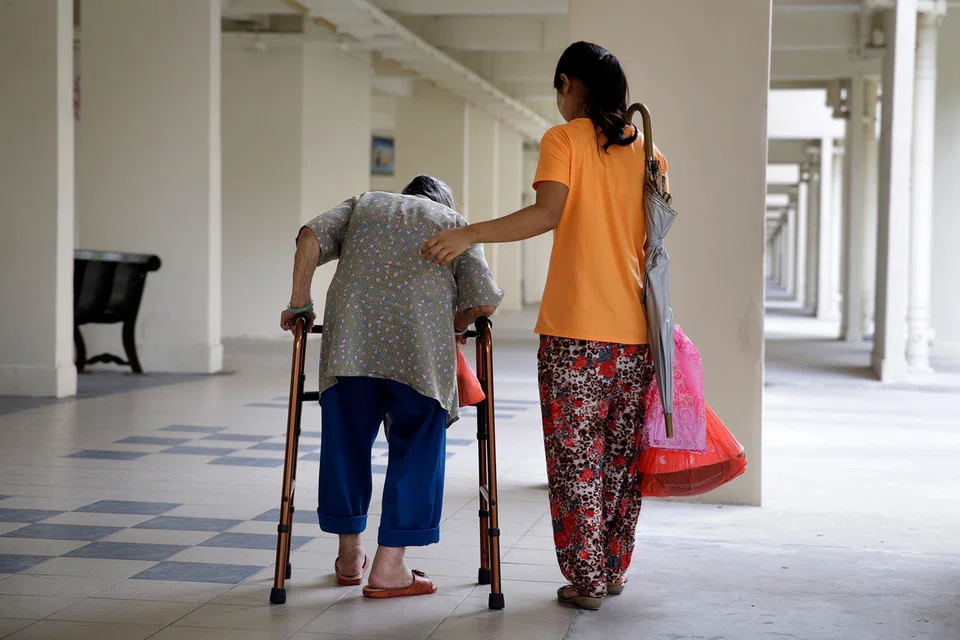I dedicate this piece to my helper of 20 years, who spent all that time finding ways to annoy me that you will not find in any textbook. It was like she was planted on earth to test my “tahaan” threshold of pain.
But man, she made up for it with skills that would put any COO to shame. From procurement to waste management, from Kerala fish curry to shepherd’s pie, from plumbing to gardening, she had it all covered.
A high-level Sudoku player, she kicked our arses at Scrabble during the pandemic. It got me thinking that if the dice had rolled a tad bit differently for her, she would have been managing the mass transit system in Manila.
In many Indian households in Singapore, we have these unsung stalwarts who rarely appear in selfies, never make the family WhatsApp chain, yet quietly run our domestic world.
They are the helpers – women (and occasionally men) who keep the chaos from tipping over, the meals appearing on time, and the laundry from turning into a textile Everest.
They are far from home, often missing families, festivals, and birthdays, yet they show up every morning like clockwork. You see them talking animatedly on the phone while walking the dog, or scrolling through TikTok for a five-minute break, while somehow keeping the entire household afloat.
They are the silent superstars of our lives.
The children, of course, have a bond with these helpers that is both hilarious and humbling. They call them “auntie” and follow them around like puppies, whispering secrets, negotiating extra snacks, and sneaking out for small adventures – all while parents hover helplessly, realising the helper knows their children’s whims better than they do.
Singaporean families often depend so heavily on these helpers that a short leave can feel catastrophic. Laundry piles up, homework battles erupt, and the dog looks betrayed.
Employers, in their desperate search for the “ideal helper”, try to find a superwoman who is endlessly competent, cheerful, and submissive – a rare combination that perhaps exists only in dreams. When the perfect match inevitably leaves, families are left scrambling to recreate a domestic equilibrium that now feels impossibly fragile.
Yet, despite the occasional frustration or cultural clash, helpers navigate our homes with humour, patience, and skill. They understand which spices offend, which dishes must be served first, and which cousins require flattery versus gentle avoidance. They know the secret passwords to our refrigerators, the hiding spots of leftover sweets, and the subtle quirks of every family member – all while managing their own lives miles away from home.
There is comedy, too. Consider the helper who rearranged the living room while the family was away. My uncle returned to find the sofa in a slightly different position. “Who moved this?” he demanded. My cousin whispered, “I think she’s redecorating in her spare time.”
There was silence, then laughter, then the quiet realisation: maybe, just maybe, the house isn’t entirely ours to control.
Then there is the matter of technology. A helper far from home will spend hours on video calls with family, guiding her children, nephews, or elderly parents.
She’ll share memes, TikToks, or WhatsApp forwards with colleagues and friends – but somehow, in between, she makes a list for Mustafa, irons all those sarees, blouses, and petticoats needed for the Gollu and Navrathri rounds while keeping your children emotionally tethered.
It is multitasking at a level most of us can only dream of.
Walk into a clinic in Singapore, and most of the elderly are with their helpers, pushing their wheelchairs, adjusting their clothes, gently giving them their water bottle to drink. They have the medicine schedule and the food menus, the walk timings, and listen to the tantrums of our old parents shrugging them aside.
Spending more time with them than we can find as we go around in our pursuits for a better life.
Helpers also bring wisdom beyond household chores. They teach us about resilience, patience, and grace under pressure. They show us that caring for a family that is not one’s own requires skill, empathy, and quiet strength.
And yet, when they leave, the house feels emptier than the cupboards, the children cling tighter, and we realise the depth of the hole they leave behind – not just in chores, but in the heart of the home.
My friend Josephine feels delighted to watch her four-year-old grandson teach 1 to 10 in English to their Myanmarese maid as she attempts to teach him 1 to 10 in Burmese! A fair exchange, I would say.
Of course, there are always some bad apples, finding any excuse to take a holiday back home, sometimes killing of an aunt or so if necessary.
The truth is, we laugh at them, occasionally grumble about their habits, and even scold them when we are sometimes irritated about something, but beneath the anger is admiration. They are the invisible scaffolding of our lives, the quiet force that makes everything work.
Perhaps that is why, despite their temporary presence, we feel such a profound connection. They are part of the family, even if not by blood, and their absence is keenly felt.
They remind us that a home is not just walls and furniture, but people – the ones who care for it, who make it live, and who, in small and large ways, teach us how to care for each other.
So, next time your helper walks by on a video call, dog leash in one hand and a phone in the other, pause for a moment. Smile, say, Good Morning! Because in the dance of diaspora life – the festivals, the school runs, the endless juggling – they are the quiet stars, the heartbeat of our homes.
And when they leave, the house still stands, yes, but somehow, it feels a little less alive.
(Daisy Irani Subaiah is a media and theatre professional with work experience in Singapore and India.)


